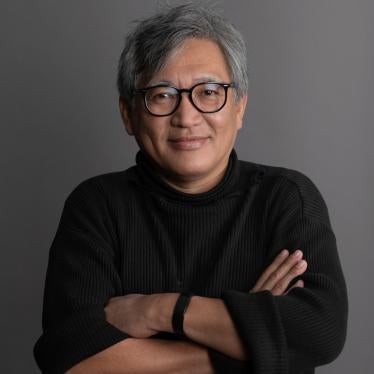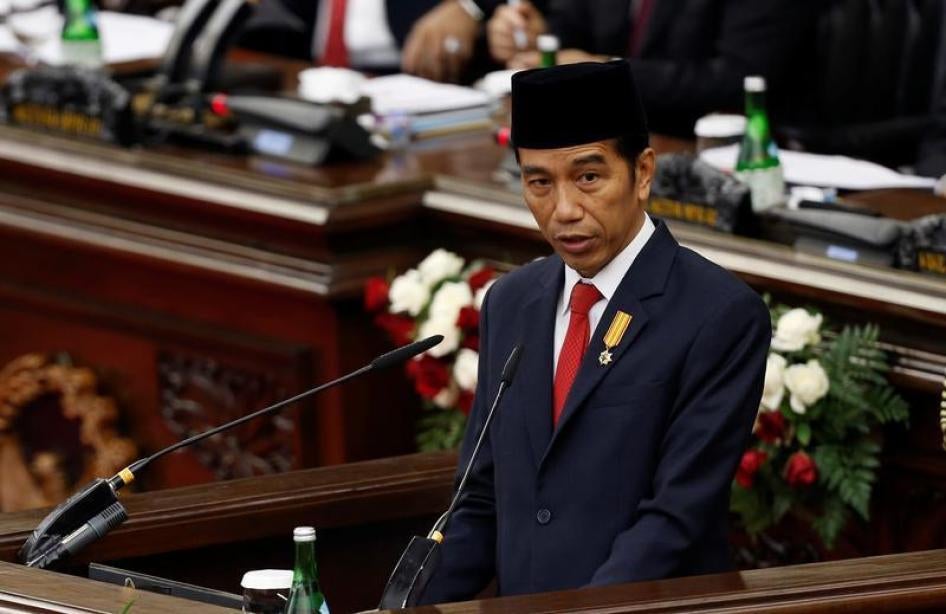One key phrase was missing from Indonesian President Joko “Jokowi” Widodo’s State of the Nation address today. True, Jokowi discussed issues ranging from Indonesia’s global competitiveness to poverty alleviation, from South China Sea tensions with China to developing Indonesian border infrastructure. But he failed to mention human rights.
There was certainly no shortage of human rights issues to address. He could have begun by announcing the abolition of discriminatory laws that victimize the country’s beleaguered religious minorities. He could have provided a timetable for clemency for political prisoners from Indonesia’s Papua and Molucca provinces. He could have – finally – defended the rights of lesbian, gay, bisexual, and transgender people, who have been the target of a government-driven campaign of hateful rhetoric. He could even have indicated a possible rethink of the government’s wrong-headed resumption of the death penalty for convicted drug traffickers.
Jokowi also made no mention of holding to account those responsible for the government-orchestrated massacres of 1 million people in 1965-66. In his 2015 State of the Nation address, Jokowi announced that the government would form a “reconciliation commission” to address gross human rights abuses of the past 50 years. Since then, his government has provided no details of when and how that process might commence. That omission, combined with Jokowi’s appointment last month of former General Wiranto as the country’s security chief – despite his indictment by United Nations-backed tribunal for alleged crimes against humanity during East Timor’s play for independence – has fueled concerns that Jokowi is turning his back on accountability for past abuses.
Jokowi wasn’t always so reticent to discuss human rights. He talked about them during his 2014 electoral campaign. His administration’s “Nawa Cita” (Nine Dreams) doctrine implicitly recognizes universal human rights and freedoms by reaffirming Indonesia’s diversity and pluralism. That doctrine’s ninth principle calls for tolerance, diversity education, and creation of “space for dialogue” among citizens. He called for the government to stop blocking foreign journalists and observers from visiting Papua. He also has called for greater respect for human rights in Papua and approved the government’s first tentative steps toward accountability for past abuses.
Jokowi needs to find his voice to speak out about Indonesia’s human rights problems and his government’s commitment to addressing them. His silence is a boon to the perpetrators of human rights abuses and a betrayal of their many victims.









